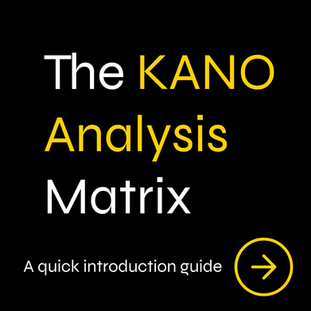
Name Dropping (Argumentum ad Verecundiam)
1
11
0

If we think about it, we’ve all faced this situation during meetings or discussions… From others or even from ourselves while trying to justify a point, a strategy or even without knowing why… "Well, Chad (head of strategy) endorsed this method without reservations; we need to implement it as is.”
Sounds Familiar? OK, let’s analyse it quickly.
From both a sociological and psychological perspective, using upper-level management name-dropping to justify a particular course of action is generally understood as a form of an appeal to authority. This rhetorical strategy leverages the credibility and status of senior figures to lend weight to an argument or decision, implying that if a recognised authority endorses something, it must be the right move.
Psychological Perspective of the appeal to authority
Authority Bias: Psychologically, this tactic taps into the authority heuristic, where individuals are more likely to accept information or decisions that come from perceived experts or leaders without scrutinising the underlying details. This bias can make people feel reassured and less inclined to question the validity of the decision.
Cognitive Ease: Citing upper-level management can reduce cognitive dissonance by providing an external justification for a decision. When faced with uncertainty or complexity, people tend to lean on the opinions of authority figures as a shortcut to simplify decision-making.
Sociological Perspective of the appeal to authority
Organisational Legitimation: In a workplace setting, this strategy functions as a means of discursive legitimation. By name-dropping high-level management, speakers align themselves with the dominant power structure, reinforcing existing hierarchies and signalling that adherence to the decision is both expected and normative within the organisation.
Impression Management: Name-dropping serves as a form of impression management. It projects an image of connectivity and insider knowledge, helping the speaker assert credibility and align with the organisational status quo. However, over-reliance on this tactic can sometimes discourage critical debate and stifle innovation, as alternative perspectives might be dismissed without due consideration.
Occasionally, a touch of name-dropping can streamline discussions. It's like a shortcut that gets everyone nodding in agreement. However, while leaning on higher management might offer a quick fix, nothing beats developing your own negotiation skills and earning genuine recognition. After all, building your expertise is the true ticket to lasting influence. On the one hand, it can streamline decision-making by providing quick validation; on the other, it may inadvertently suppress critical discussion and encourage conformity without proper evaluation.
It’s easy to justify it when we use it, but it’s even easier to hate that move when it’s done by others. And, since we can’t change others, the first course of action would be to work on ourselves and lead by example by mindfully removing it from our day-to-day interactions
Let’s focus on the downside of the appeal to authority and its consequences in the team’s dynamics
1. Erosion of Authentic Communication
Downside: When leaders or team members rely on name-dropping to validate decisions, it often obscures the underlying rationale. Rather than engaging in frank, substantive discussions, the focus shifts to deferring to what supposedly "the boss" said rather than evidence or reasoned argument.
Impact on Teams: Over time, teams might stop questioning decisions, leading to a culture where open debate and genuine dialogue are suppressed. Critical feedback becomes harder to voice because members feel that their own expertise is being sidelined by appeals to authority.
2. Reinforcement of Power Imbalances
Downside: Name-dropping serves to reinforce existing hierarchies by implicitly stating that higher management’s opinions are infallible. This can signal that the decision is beyond dispute, regardless of its merit.
Impact on Teams: Such dynamics diminish psychological safety, as employees may feel compelled to conform or remain silent rather than expressing dissenting opinions. The imbalance stifles empowerment and can lead to disengagement, as junior employees might perceive that their contributions are less valuable.
3. Reduced Autonomy and Initiative
Downside: By leaning on the clout of upper management, team leaders or colleagues abdicate the responsibility of providing clear, logical justifications. This reliance on external authority can weaken an individual or team’s sense of autonomy.
Impact on Teams: Employees may become less inclined to take initiative or propose innovative solutions if they believe that decisions are predetermined by top-tier mandates. This can lead to a culture marked by passivity, with teams waiting for directions rather than actively engaging in problem-solving.
4. Perception of Manipulation and Distrust
Downside: Name-dropping can come off as a manipulation tactic, an attempt to end a discussion prematurely by invoking power rather than addressing concerns. This tactic may be viewed as a way to avert accountability for robust decision-making processes.
Impact on Teams: When team members perceive that decisions are being justified primarily by “upper management said so,” it can breed cynicism. Trust erodes as employees question whether such decisions are truly in the team’s best interest or simply a means of consolidating control, potentially stifling open communication and collaboration.
5. Inhibition of Creativity and Innovation
Downside: A culture that overly venerates top management through name-dropping often discourages dissent and critical evaluation. When decisions are justified solely by authority, the incentive to think creatively or challenge the status quo diminishes.
Impact on Teams: Innovation suffers when team members are discouraged from independently evaluating or questioning strategies. A reliance on hierarchical validation can suppress divergent thinking, resulting in solutions that may be less adaptive or modern, inhibiting the team's ability to respond dynamically to changing circumstances.
how to defuse the situation when someone use “Appeal to Authority”
One effective approach is to call it out and refocus the conversation on clear roles and responsibilities rather than hierarchy. Two powerful tools for achieving this are the RACI Matrix and the Approval/Decision Authority Matrix.
The RACI Matrix clarifies who is Responsible, Accountable, Consulted, and Informed for each task, thereby highlighting the distributed nature of decision-making rather than reliance on top-down mandates
The Approval/Decision Authority Matrix visually outlines who holds the authority to make or veto decisions, which brings objectivity and transparency to the process, though it may slow decision-making if the process becomes overly bureaucratic.
These tools can shift the focus away from appeals to authority and toward a more balanced, collaborative framework that values contributions from all members.
Final Thoughts
While appealing to authority through name-dropping / Appeal to Authority might offer short-term compliance and clarity, the long-term effects on team dynamics are concerning. The erosion of authentic, evidence-based conversation, the reinforcement of hierarchical power imbalances, and the subsequent reduction in autonomy can collectively hinder a team's capacity for innovation and resilience. For sustainable success, fostering an environment where ideas are evaluated on their own merits via transparent, inclusive dialogue is essential.





